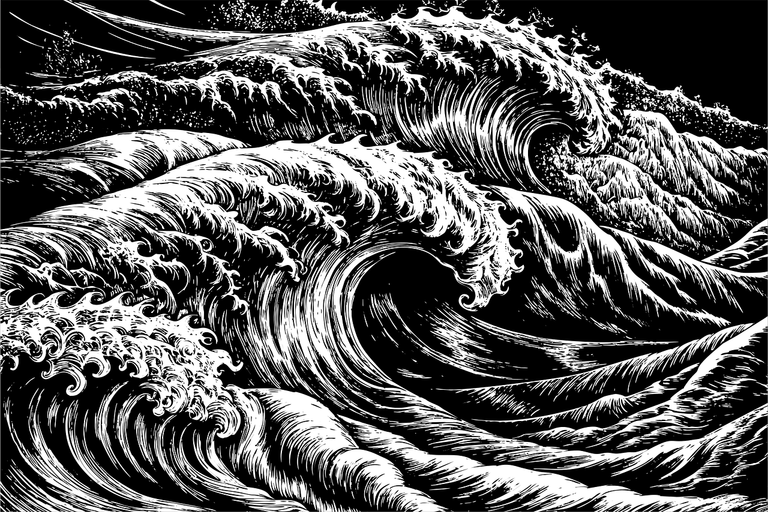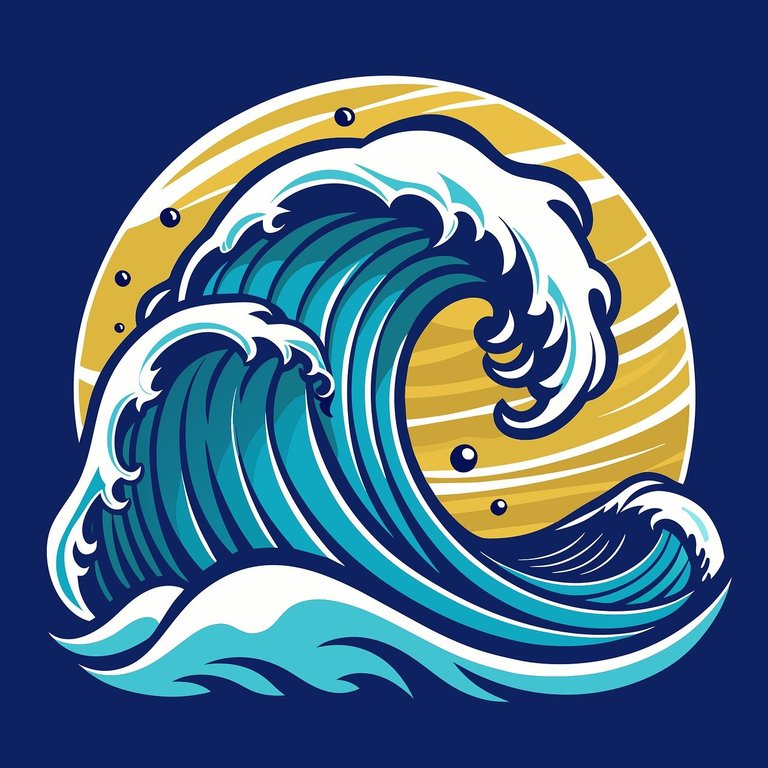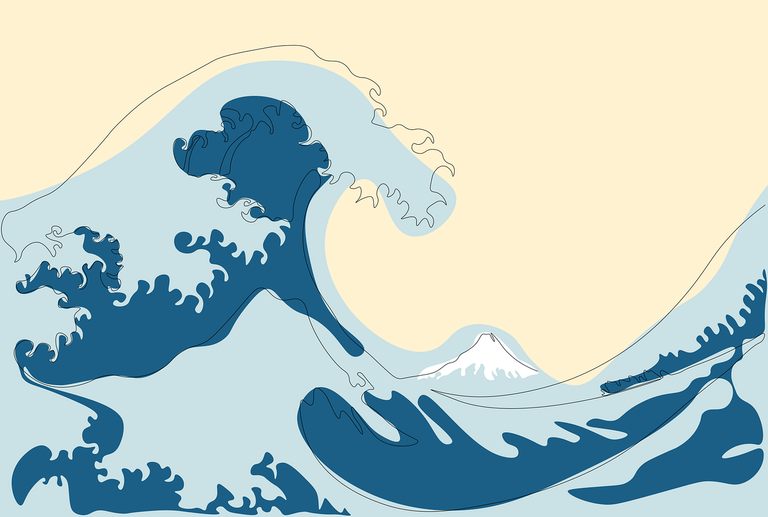My Journey into possible Ocean Currents Doom
Okay the style of this post was inspired by @mobbs ! right there in the stemsocial discord channel where he talked about when he used to publish posts about the cool stuff he learnt for the week. I got inspired and decided to hop on the band wagon. So here I am trying to do the same lol
So what have I learnt today? Follow closely

Yeah, I stumbled upon an article with a headline that screamed "PANIC NOW OR REGRET LATER!" just kidding, what it actually said was, "Changes in Ocean Currents Could Destroy the Planet, New Study Suggests," . Being intrigued and a little terrified, I clicked on the link, and thus began the ride with series of word both scientific and non-scientific as the driver.
Now, The article opened with one of those introduction about how scientists have observed significant changes in the Atlantic Meridional Overturning Circulation (AMOC). For those of you who aren’t fluent in the scientific language (which, let's be honest, includes me), the AMOC is basically a giant conveyor belt of ocean water that helps regulate the climate. Yeah , think of it as the ocean's way of keeping things cozy, much like those our grandma’s knitted sweater, except with a lot more water and no questionable color choices.
According to the article, a new study suggests that this crucial ocean current system is showing signs of slowing down. Now, if you’re like me, your first thought might be, "Slowing down? Maybe it's just tired. I mean, it’s been doing its thing for millions of years. Cut it some slack!" But then the article hit me with the consequences of such a slowdown, and I immediately knew there was problem

Turns out, if the AMOC continues to weaken, it could lead to catastrophic climate changes. We're talking about more extreme weather events, rising sea levels, and even the potential collapse of entire ecosystems. Basically, Mother Nature is about to go on a rampage, and we're all invited to the party. Yeah while coming to the party, you might want to learn to swim though .
At this point, a lot went through my mind . I realised one thing though, now the article aside, I really need to learn how to swim for survival, and that is undebatable. No telling what can happen to our planet earth .The article wasn’t shy about painting a picture of doom and gloom. The possibility of a makeshift raft not saving the day was a possibility.
But wait, it gets better. It mentioned that this isn’t just a future problem. Changes in the AMOC have already been linked to unusual weather patterns, like the infamous polar vortex that turned parts of the United States into an icy wasteland.

Now this article was sort of supposed to be more of a panic mode activator, but it became more of fascination mode activator. I mean, here we have this invisible force, a hidden powerhouse in the ocean, that has such a profound impact on our daily lives. It’s like discovering that the reason your Wi-Fi is slow isn’t because of your neighbor’s insatiable Netflix binge but because of a rogue ocean current.
Naturally, the article offered some hope in the form of solutions. Scientists are urging for rapid reductions in greenhouse gas emissions to mitigate the impact on ocean currents. Great, I thought, just another reminder to feel guilty every time I forget to recycle or use a public transport. But hey, if it means saving the planet from aquatic doomsday, I’m all in.
By the end of the article, I was left with a strange mix of dread and determination. Dread because, well, who wants to live on a planet where the weather is more unpredictable than a toddler in a candy store? And determination because if there’s anything this article taught me, it’s that even the smallest actions can make a difference. Like, I don’t know, spreading the word about recycling and planting trees even if we obviously cant stop cutting down. Hint, hint.

So yeah, it was certainly a wide ride through the highs and lows of learning about ocean currents and their potential to turn our world upside down. It’s a sobering thought frankly, but also a call to action. Because if we don’t start taking care of our planet, we might all end up floating down Main Street on make shift rafts, fending off sharks, and wondering where it all went wrong. And trust me, nobody looks good doing that.
Thanks for reading, and hope you have also learnt one or two like I did
References
Credit
- All images were gotten from pixabay





